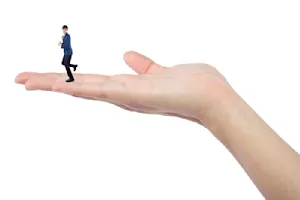What Makes This Word Tick
"Despicable" is one of those words that rolls off the tongue with a delightful mix of disdain and drama. Perfectly suited for moments of righteous indignation, it signals something or someone that deserves to be looked down upon. It often carries an air of the theatrical, as if accusing someone of being dastardly enough to tie hapless heroines to train tracks.
If Despicable Were a Person…
Picture a person with a penchant for twisting their mustache—or perhaps twirling a metaphorical villain’s cape. This is someone who gets a mischievous thrill from causing a little chaos or taking candy from children, just because they can. But like any stereotypical baddie, they're charming enough to keep you hanging on their every dastardly word.
How This Word Has Changed Over Time
"Despicable" hasn’t strayed too far from its roots in terms of meaning. It has maintained its sense of moral reprehension since its entry into the English language in the mid-16th century. As society's standards evolved, so did the contexts where this word would raise moral eyebrows, but the essence of contempt remains steadfast.
Old Sayings and Proverbs That Use Despicable
While there aren't old-timey proverbs featuring "despicable" outright, the sentiments echo through aphorisms about villains always getting their comeuppance. The shared wisdom? Karma and justice don’t take kindly to the despicable deeds of knaves and scoundrels.
Surprising Facts About Despicable
In modern times, "despicable" found its claim to fame through the unlikely star, Gru, from "Despicable Me." This animated series gave the word a humorous twist, as audiences around the globe fell in love with the bumbling villain whose heart grew three sizes by the final reel—a nod to how context can soften even the harshest words.
Out and About With This Word
Think of "despicable" as the theatrical boos you give to the panto villain at a community theater. It’s the word that stands in the wings, ready to be flung at anyone who dares to be particularly unreputable or morally sticky in public discourse.
Pop Culture Moments Where Despicable Was Used
Beyond the animated realm of Minions and masterminds, "despicable" often pops up in Hollywood to label the dark deeds of its favorite screen antagonists. From conniving corporate cronies to epic fantasy villains, movie scripts love to drape this damning word over bad guys like a fine, malicious cloak.
The Word in Literature
In literature, "despicable" is often found lurking in moral tales and telling off those with less than noble intentions. Dickensian villains like Ebenezer Scrooge (pre-hauntings) and Uriah Heep wear this word as easily as their Dickensian garb, punctuating stories where moral lessons loom large.
Moments in History with Despicable
When Charles Dickens denounced factory conditions in his writings, the moral outrage of his critics likely simmered with words like "despicable." History’s muckrakers and reformers have eagerly wielded this term to rally against the injustices of their times, from sweatshops to corrupted courts.
This Word Around the World
Globally, "despicable" finds its counterparts in words like the French "méprisable" or the Spanish "despreciable," all capturing that same essence of deserving disdain. It’s a universal jab at anyone or anything that falls foul of society’s code of conduct, showcasing a shared human instinct to call out foul play.
Where Does It Come From?
The roots of "despicable" stretch back to the Latin "despicari," meaning "to look down upon" or "to despise." Over time, as languages evolved, this little moral judgment traveled through Middle French before nestling snugly into English vocabulary.
How People Misuse This Word
Occasionally, "despicable" is brandished with a bit too much hyperbole when mild discontent might suffice. It’s sometimes thrown into the fray when indignation trumps accuracy, leading to its reputation as a go-to for exaggerated flare.
Words It’s Often Confused With
Deplorable: Both scowl at wrongdoings, but "deplorable" focuses more on something’s regrettable nature.
Detestable: While both express strong dislike, "detestable" splits hairs by being more about personal revulsion.
Contemptible: Shares disdain but often emphasizes the worthlessness of its subject.
Additional Synonyms and Antonyms
For synonyms, think of "contemptible," "vile," and "reprehensible." As for antonyms, consider words like "admirable," "laudable," and "praiseworthy" to keep things pleasantly on the sunny side of sentiment.
Want to Try It Out in a Sentence?
"Even the most despicable scoundrel can sometimes have a redeeming quality, hidden beneath layers of apparent audacity."
















